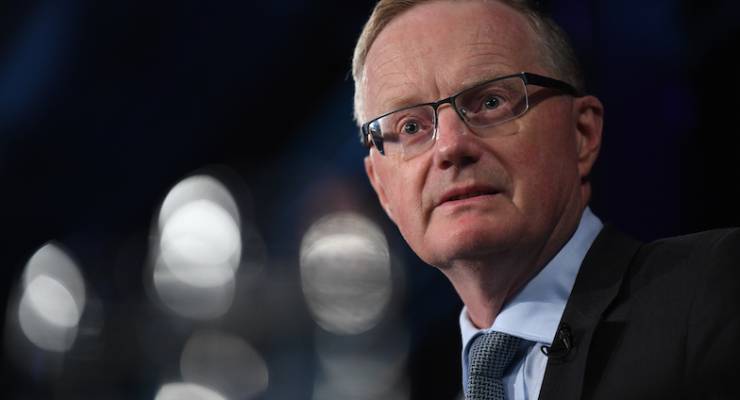
Despite Australia coming through the pandemic lockdown much more quickly than expected, and with far fewer casualties, the economic impact is proving more significant than optimistic policymakers, who confidently spoke of building a bridge across the crisis, initially thought.
To labour the metaphor, the bridge may be shorter, but the other side remains shrouded in deep fog and we’ve no idea what the ground looks like.
RBA governor Philip Lowe yesterday gave an online address to a finance conference and his carefully chosen words went a little further than previous statements in noting that the recovery will very much will depend on the confidence of businesses and consumers to get back to normal.
This is the fog — for business, consumers and for policymakers as well.
Not just uncertainty about when the restrictions would be fully eased, but when consumers and business would feel relaxed enough to start spending and investing. It was critical, Lowe said, to restore confidence on two fronts:
The first is the confidence that we can go about our lives and remain healthy. And the second is the confidence that we will have jobs and incomes and the economy will grow strongly again.
That is, even if we become much more confident about our finances and the economy — something we haven’t been for a long time, since before the Great Morrison Stagnation set in — how relaxed will we, especially those of us over 50, be about doing things once taken for granted?
How happy will we be to go to to a packed restaurant or pub, go to a busy shopping mall, get into a crowded lift, get on the flying petri dishes known as planes — without fretting that we’ll get infected by the person next to us?
Predicting that is hard — especially when there are mixed signals around crucial factors like housing prices, and the point at which major government supports like free child care and Jobkeeper/Jobseeker payments will end.
This is where the endless “don’t waste a crisis” drumbeat for hardline neoliberalism coming from buffoons in business, The Australian Financial Review and far-right outfits like the IPA takes on a particularly bizarre character.
Can you imagine working Australians taking any confidence at all from the government announcing a return to Workchoices and the prospect of losing even the minimal wage rises they’ve had in recent years?
And how cheered ordinary families would be when the government tells them we’ve got hundreds of billions in debt to pay off but it wants to give multinational companies a massive tax cut?
The foremost policy question isn’t going to be how far to cave in to the Business Council’s demands for punishment of workers, or how big a windfall to give multinationals, but how much more fiscal stimulus is needed to prevent the recovery from petering out, especially in a global economy struggling with a feeble United States.
We know the Coalition backbench is restive about the amount of debt the government has taken on in its entirely correct decisions to “build the bridge” so far.
More stimulus is likely to be looked at askance by more right-wing Liberal MPs.
On that score, though, Morrison’s Treasury secretary Stephen Kennedy was entirely unhelpful when speaking to the Senate pandemic committee hearing yesterday.
Kennedy finally interred the briefly popular government line that there’d be a “snapback” or “v-shaped recovery”.
“I’m not predicting a V-shape recovery,” he said. “But given the nature of the shock — if the government responds well with its fiscal levers, we needn’t have an L-shaped recovery, which is what people would think when it comes to a depression.”
“If the government responds well with its fiscal levers …”. Note the present tense.
But what about all that debt we’ve racked up? Kennedy told the committee he was “not particularly concerned about the level of debt Australia is left with” at the end of the pandemic. He said debt would be “significantly higher”, but given the economic shock it was “entirely appropriate” to respond in the way the government had.
If the structural budget was sound and the government focused on achieving full employment, the debt issues would “solve themselves”, especially given how long bond rates were.
That suggests Treasury does not regard debt as a major impediment to consideration of further fiscal stimulus.
Which is what uncertain consumers and business may very well need as we stick our collective feet into the fog and hope to feel solid ground.









Does the sudden discovery on Friday arvo of a $6B “error” in underspend on this amazingly generous government largesse mean anything?
Not asking re this article which is meaningless pabulum, a real bunking off for the week end effort – aka the Friday arvo car.
It means they will put even less towards stimulus, the exact opposite of what is needed.